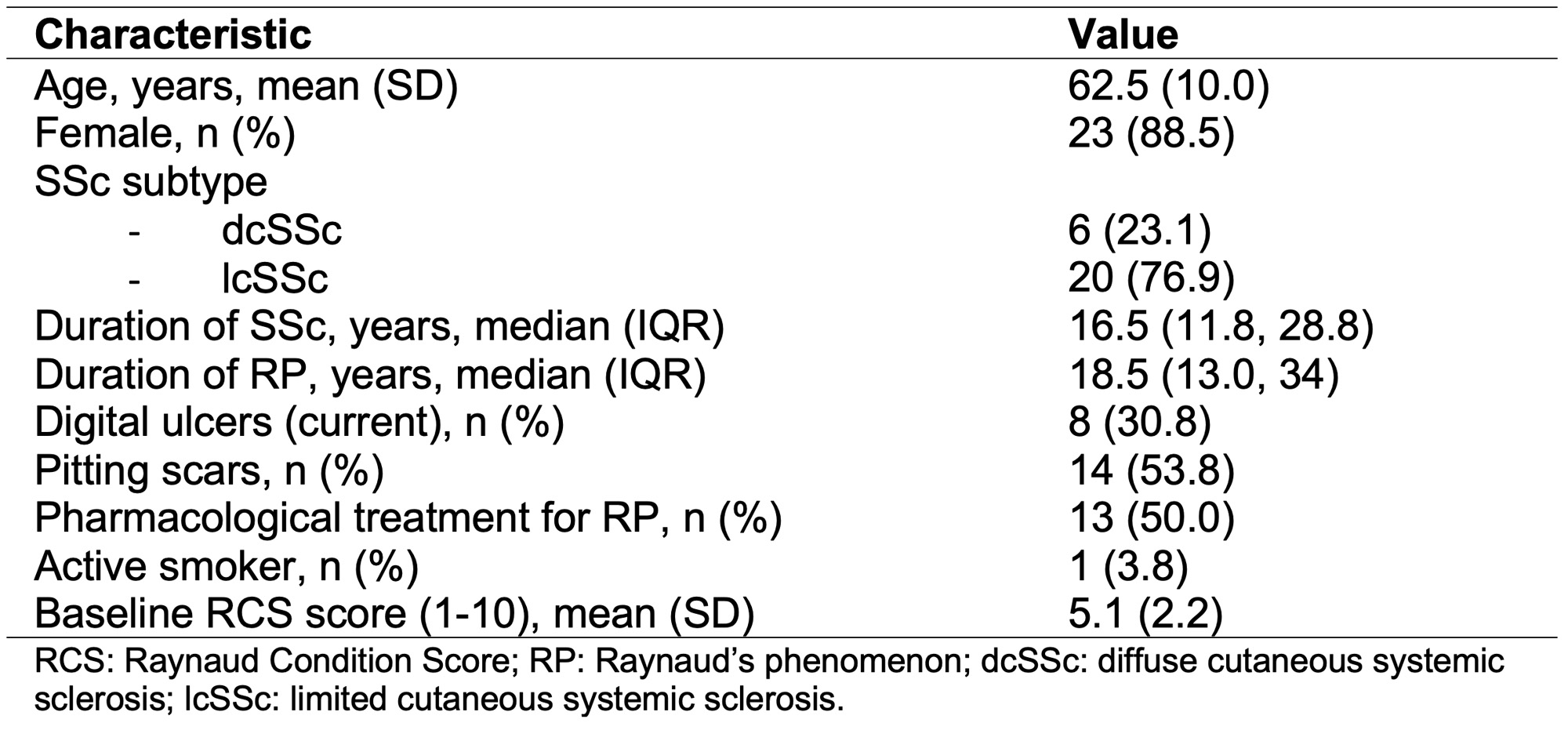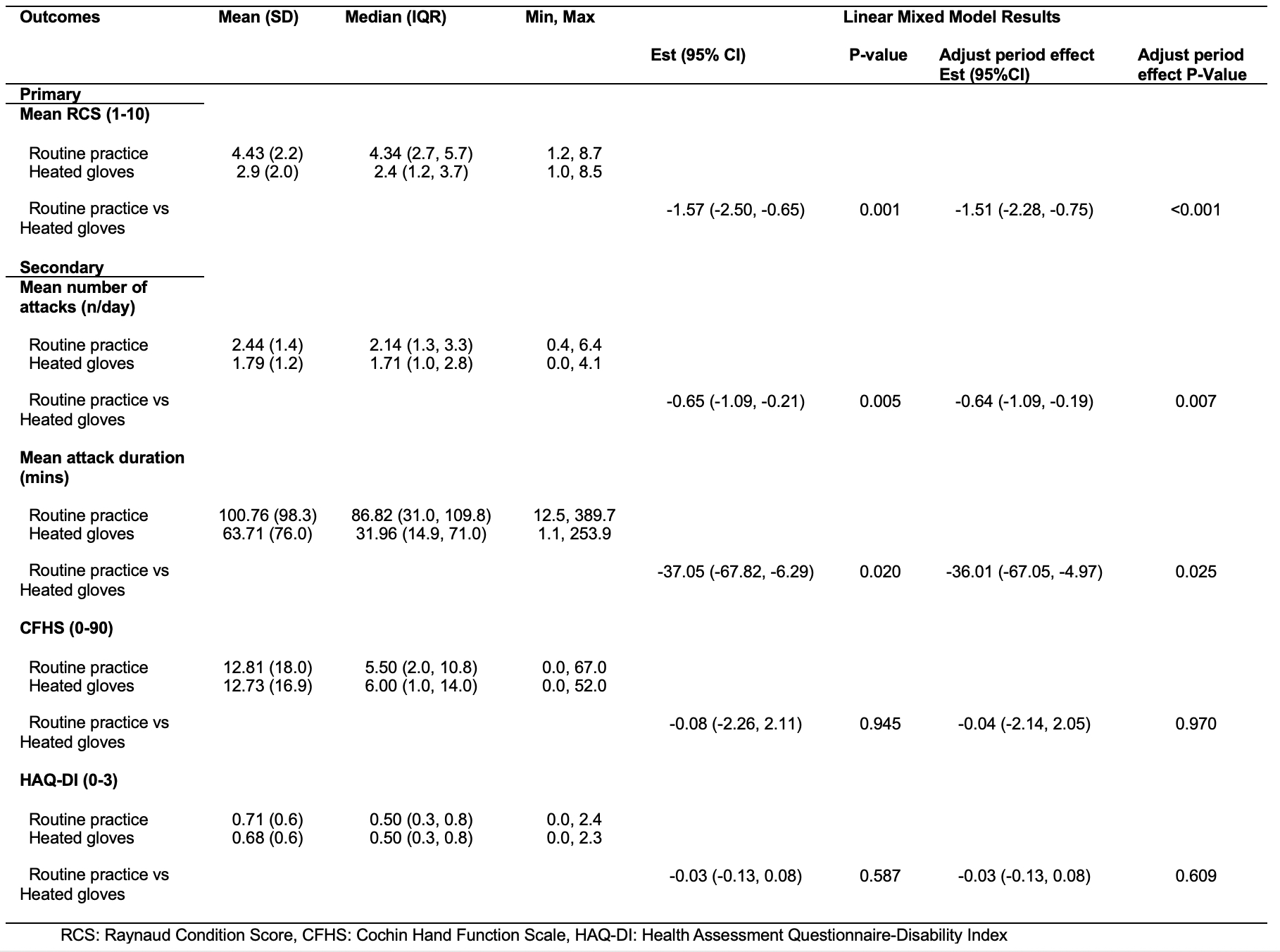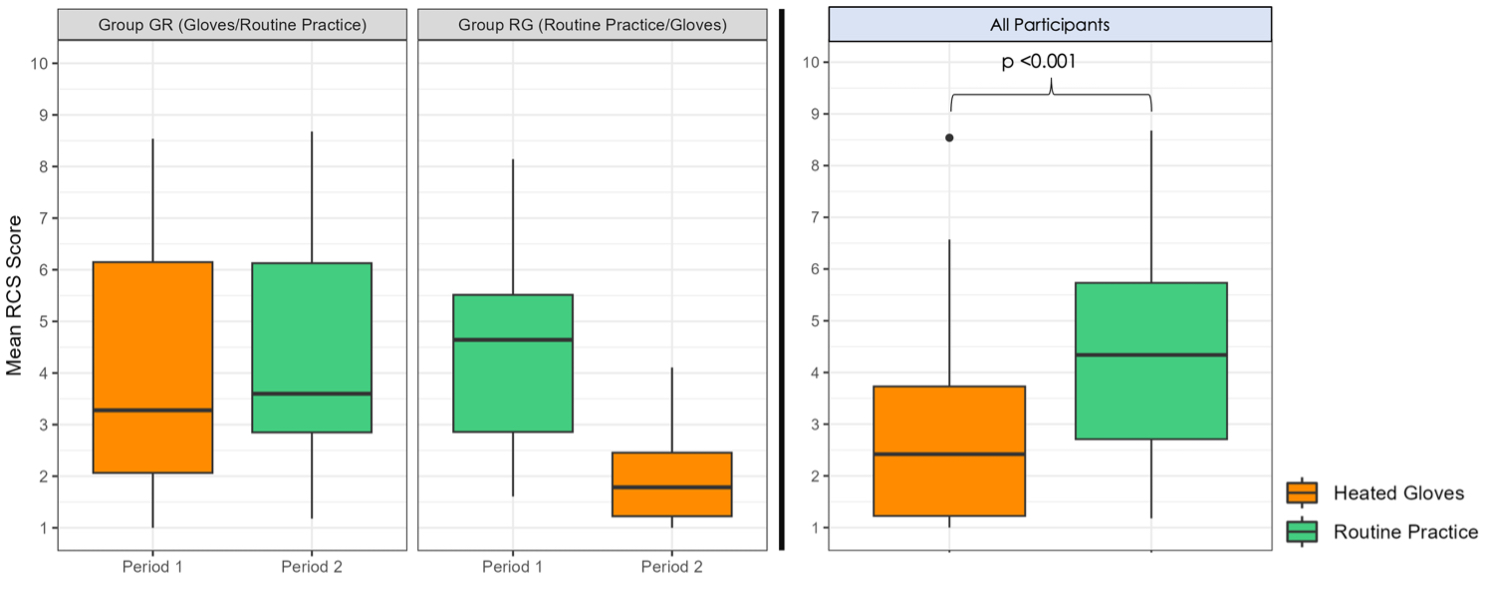Session Information
Date: Sunday, November 12, 2023
Title: (0609–0672) Systemic Sclerosis & Related Disorders – Clinical Poster I: Research
Session Type: Poster Session A
Session Time: 9:00AM-11:00AM
Background/Purpose: RP and its ischaemic complications are a major cause of morbidity in SSc. Non-pharmacological measures to minimise cold exposure can play a vital role in managing RP. This study sought to compare the efficacy of heated gloves compared with routine practice in SSc.
Methods: A single centre, randomized crossover trial was undertaken in patients with SSc according to 2013 ACR/EULAR classification criteria. The study was conducted during winter and participants were randomized into two groups. Group GR (Gloves/Routine practice) commenced treatment with heated gloves for 28 days followed by 28 days of usual practice (which could include use of non-heated gloves). There was a one week washout between heated gloves and routine care. Group RG (Routine practice/Gloves) followed the same protocol in reverse order. Patients were advised to continue their pharmacotherapy. Data was collected via patient diary and included a daily Raynaud’s Condition Score (RCS), hours gloves worn, RP attack details, and adherence to pharmacotherapy. Cochin Hand Function Scale (CHFS) and HAQ-Disability Index (HAQ-DI) score were collected at baseline and at each period end. The primary outcome measure was RCS, averaged over 28 days for each participant for heated glove use versus routine practice. Power calculation indicated a sample size of 22 required to achieve 90% power for detecting a minimal clinically important difference of 1.4 in RCS determined by Khanna et al. at a significance criterion of α = 0.05. To determine if the timing of active treatment influenced response between groups, a linear mixed effects model was fitted to the average RCS and adjusted for period effect. The model was repeated for secondary outcomes including mean number and duration of RP attacks, CHFS and HAQ-DI score. RCS, CHFS and HAQ-DI analyses were baseline adjusted.
Results: Twenty-six participants completed the trial (Table 1). Two participants were withdrawn due to insufficient data, one following baseline visit and one from the GR group at washout. Mean hours of glove wearing per day was 4.77 in the GR group and 2.68 in the RG group. From the period and baseline adjusted model, the combined heated gloves groups had a 1.51 unit lower mean RCS score compared to routine practice (95%CI (-2.28, -0.75), P< 0.001) (Table 2, Figure 1). From the period-adjusted model, the heated gloves group had a 0.64 reduction in mean number of attacks (95%CI (-1.09, -0.19), P=0.007). For the mean duration of attacks, there was no significant period effect (0.377) but there was interaction between period and treatment (P=0.027). From the period adjusted model, the heated gloves group had 37.05 minutes lower mean attack duration compared to the control group (95% CI (-67.05, -4.97), P=0.025). There was no difference in CHFS score (95%CI (-2.14, 2.05), P=0.970) or HAQ-DI score (95%CI (-0.13, 0.08), P=0.609) between treatment periods. Reported side effects included skin dryness (2 participants) and intolerance to glove heat (2 participants).
Conclusion: Heated gloves resulted in a statistically and clinically significant reduction in daily RCS. Heated gloves are an effective and safe intervention for reducing RP symptoms in SSc and may be a useful alternative/adjunct to current practice.
To cite this abstract in AMA style:
Kumar K, Abu Mansor Matardiah N, Griggs K, Kunnel A, Walker J, Proudman S. Use of Heated Gloves for Raynaud’s Phenomenon in Systemic Sclerosis [abstract]. Arthritis Rheumatol. 2023; 75 (suppl 9). https://acrabstracts.org/abstract/use-of-heated-gloves-for-raynauds-phenomenon-in-systemic-sclerosis/. Accessed .« Back to ACR Convergence 2023
ACR Meeting Abstracts - https://acrabstracts.org/abstract/use-of-heated-gloves-for-raynauds-phenomenon-in-systemic-sclerosis/



